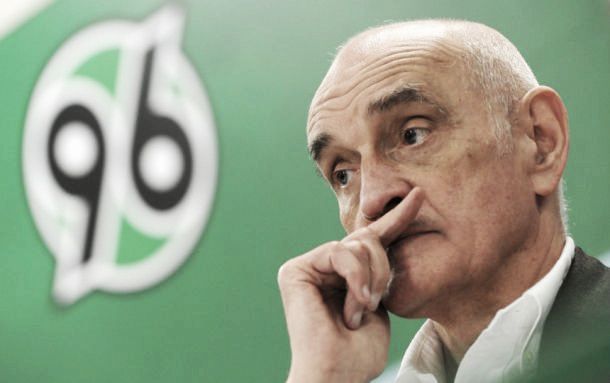On 4 December 2014, software mogul Dietmar Hopp was granted an exception to the famed German 50+1 rule by the DFL, allowing him to acquire a majority stake in the club he has brought steadily up the league pyramid from complete obscurity to the bright lights and glamour of the very top - The Bundesliga. In the eyes of the wider global football fraternity, this is nothing new - Clubs are taken over by wealthy benefactors at a steady rate, injecting previously unimagined amounts of capital into attempting to take their team to the top. But for German football fans, it is a hammerblow to everything they proudly stand for, the fan ownership that gives the people who, in the end, pay the salaries of everyone involved in the club the ability - And right - To be involved in the decision-making process on a small and large scale. Concerningly, these types of rulings might be set to become the norm rather than the exception in coming years.
To understand the problem, one must first fully understand what the 50+1 rule is all about, for it is an uniquely German concept. What it boils down to, in essence, is that 50% plus another 1% of stakes in any given club must at all times be held by the parent club - Which translates to club members, or in more simple terms, the fans. This obviously means that sponsors and investors may in theory never gain more than 49% of the club - Which keeps the decision-making power in the hands of the supporters, who ensure that the soul of the club does not become institutionalized. However, there have always been exceptions to the rule: Bayer Leverkusen and VfL Wolfsburg have, since the early 1900’s, been ‘factory teams’, started initially for factory workers of pharmaceutical company Bayer and automotive giants Volkswagen, respectively. When they gained entry to the Bundesliga, it was decided that there would be no significant changes to the management structure of these two clubs due to their history and unique circumstances for coming into being. But make no mistake, German football fans have never warmed to either Die Werkself or Die Wölfe, and they are to this day considered ‘plastic’, despite both having easily a half-century of history.
What the 50+1 rule boils down to is that 50% plus another 1% of stakes in any given club must at all times be held by the parent club - Which translates to club members, or in more simple terms, the fans. This obviously means that sponsors and investors may in theory never gain more than 49% of the club
But what enrages traditionalists is the fact that the aforementioned Dietmar Hopp single-handedly bankrolled the rapid rise of 1899 Hoffenheim from the complete basement of the German footballing hierarchy to nearly winning the Bundesliga in their first-ever season - In fact, that 2008-2009 campaign saw them end the Hinrunde as Herbstmeister, or Autumn Champion - While many traditional powerhouses falter financially. The joke of the whole matter is that the village of Hoffenheim has a population of a full 3,272 - Barely enough to fill a quarter of the Rhein-Neckar Arena, which just serves to illustrate that with no Dietmar Hopp, there would be no 1899 Hoffenheim (And no fans). When their sugar-daddy, who of course is a multi-millionaire due to being one of the founders of the globally successful company SAP, gains a controlling stake in the club, a precedent will be set for the future that cannot be overturned. Tribunal guidelines have been issued by the DFL that now states if a situation arises "in which a legal entity has uninterruptedly and significantly supported the football of a parent club for more than 20 years", that entity can own more than 50% of the club after a “complete evaluation”.
Alarmingly, this has been an issue that has simmered just below the surface for quite some time, with Hannover 96 President Martin Kind having on numerous occasions made his disdain for the 50+1 rule clear, and left no doubt that he would like to take a controlling stake in the club. He has never tried to hide the fact that he is more businessman than football fan, and thus wants to run the club as such. Obviously, as you can only imagine, this has led to numerous clashes with fans, which even resulted in many returning their season-tickets to rather go and support amateur Hannover 96 II in the Regionalliga Nord, who still play their football at the Beekstadion. The former head of the umbrella organization of the 96ers’ fan clubs, Christian Brehm, summed the decision up perfectly by stating "I have the feeling that here I can breathe football the way I like to. For me, football means emotion and passion, it is not a regulated marketing tool”. Is this now what things have come to? Will fans who believe that things should remain as they are - Fan centered, inclusive and, above all, for the football, not the money - All be forced to reserve team football in the amateur reaches of the German game? The thing that has always made the Bundesliga special is its heart and atmosphere, but once this trend grows, the league is set to become as soulless as the Premier League. Sure, it might generate more money and perhaps more short-term success on the pitch, but money cannot buy an ethos, a tradition and, most importantly, fans who stick with their club through thick and thin.
"I have the feeling that here I can breathe football the way I like to. For me, football means emotion and passion, it is not a regulated marketing tool” - Hannover 96 fan Christian Brehm on why he decided to support the U23 side instead of the senior team
With this new regulation of a benefactor who has financially supported a club for 20 years being able to bypass the 50+1 rule, expect the most despised club of all among fans, RB Leipzig, to become a power. They have already masterfully (Or unethically) And ruthlessly exposed any possible loophole in the rule, and provided Dietrich Mateschitz does not get bored with this whole football thing, in about 15 more years they will truly be able to do what they wish, and turn the untold riches of the entire Red Bull empire towards winning everything in sight. Prophecy of doom from a glass-half-empty outlook? Perhaps, but while all is well currently in the Bundesliga, it might not be so in a decade or two. There is a very fine line between increased income and the alienation of fans, and the key is to find an acceptable balance. Take Hamburger SV as an example - One of the most storied football clubs in German - No, world - football have found themselves consistently at the wrong end of the table and in a downward spiral over the last two years. In order to increase their income in the pursuit of recovery, the footballing division of HSV was turned into a Limited Company, which immediately alienated a large chunk of their most dedicated fans who have supported their club through the good and the bad for decades. Hence, they went on to start their own club, HFC Falke, abandoning the club who they felt abandoned them. What does this have to do with the 50+1 rule? Well, main investor Klaus-Michael Kühne has progressively become more active in all decision-making, as pretty much his money alone attributed to the return of Rafael Van Der Vaart a couple of years back and the purchase of Pierre-Michel Lasogga in 2013-14. While done well within the boundaries of the rules, it is surely only a matter of time before he joins Martin Kind in his crusade against what many feel is a ‘restrictive’ rule, particularly with Hamburger SV continuing to struggle, certainly compared to their former glories.
"If you want to challenge for a top three or four finish in the Bundesliga, then you've got to have a big budget. We - the ones in charge - have got to ensure we can do that" - Schalke President Clemens Tönnies to BILD
“Money scores goals”, Schalke President Clemens Tönnies noted in an interview with BILD. "If you want to challenge for a top three or four finish in the Bundesliga, then you've got to have a big budget. We - the ones in charge - have got to ensure we can do that". Sadly, this is an ever more popular sentiment, and the only way for German clubs to get big money fast would be the removal of the 50+1 rule, which would, as alluded to previously, take to pieces what makes this league special. However, many are only looking at the short-term rewards, rather than potential ramifications in the long run. Former VfB Stuttgart Sporting Director Fredi Bobic bullishly stated to kicker that "In the future, there will be no 50+1 rule but only Public Limited Companies - Perhaps even owners, which is common practice in other European leagues. We're a bit late, but sooner or later we are going to slaughter this sacred cow”. In a nutshell, this would lead to the stagnation of German football as time goes by. When there are almost limitless funds available from clubs selling themselves out to wealthy Middle-Eastern Sheiks or oil barons, what happens to youth development? Rival leagues look at the renowned German production line of talent with longing eyes, but when the ability is there to acquire established international stars at any price, where will the youngsters play? And, more importantly, what would the point be in developing talent when you could just poach from others? It goes without saying that the German Nationalmannschaft would be hurt badly, which would undo all the hard work that the DFL and DFB put in to convince the Bundesliga clubs to work to a common goal of getting Germany back to the very top.
The 50+1 rule might be restrictive, but it has led to the Bundesliga becoming one of the most admired leagues in the game - Fostering youthful talent, an incredible fan culture and, ultimately, success on an international scale. It is possible to become a financial power without sidestepping the 50+1 rule - Bayern Munich have proven that - But it takes decades and decades of hard work. However, the rewards of hard work would be much sweeter than immediate success that could easily lead to an over-capitalized affair like the Premier League, or debt-ridden like La Liga.










































